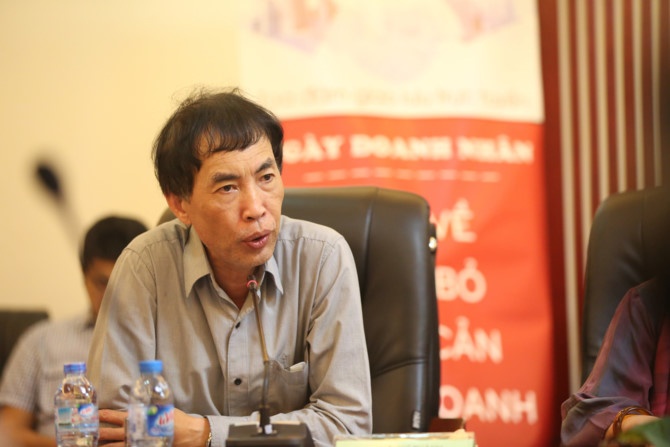Samsung Vietnam appoints its first Vietnamese senior executive
Samsung Vietnam appoints Nguyen Hoang Giang to SEVT senior leadership, the first Vietnamese executive in the company’s local manufacturing units.




Despite many breakthroughs in 2017, Vietnam economy outlook is still forecasted to face many problems in 2018.

In 2017, Vietnam has successfully fulfilled all 13 targets of socio-economic development, notably 6.7% GDP growth - the highest figure recorded in almost 10 years.
The economy also witnessed a series of record numbers in many fields: import-export turnover exceeded US$400 billion; FDI capital reached US$11 billion in the first 11 months; 120,000 enterprises have been established .
In addition, that Vietnam successfully held APEC High level Week in November has helped promote the country's status in the international arena and open up more investment opportunities.
The question is whether the economy will be able to accelerate this momentum in 2018 or not due to internal challenges such as rising public debt and tight national budget.

According to Ph.D Vo Tri Thanh, former deputy director of the Central Institute for Economic Management (CIEM), Vietnam's economy is very open and will depend heavily on the global economy.
Meanwhile, the world economy is projected to expand in 2018 but not as large as in 2017. The world is also facing major risks related to geopolitical tensions and protectionism concerns.
"In 2017, we reached 6.7% GDP growth thanks to Samsung's jump in production," Thanh said.
He also noted that Vietnam's economic growth still depends heavily on some certain areas such as manufacturing, real estate and services. These sectors may continue to grow in the next year but not as strong as in 2017.
The biggest challenge, according to the expert, will come from outside, such as geopolitical risks. "The internal factors are not considered risks, but the main problem is to harmonize short-term growth and institutional restructuring," he said.

In terms of financial markets, Ph.D Truong Van Phuoc, acting chairman of the National Financial Supervisory Commission (NFSC) said that Vietnam is an export-led economy; therefore, regulatory changes between countries, unstable global financial situation, geopolitical tensions will culminate in stock market's volatility.
The market, after a period of rapid growth, will need time to accumulate capital again. However, unlike healthy businesses which will continue to be supported by the growth circle and financial cash flow, weak businesses which issue stocks rampantly without effective use will lose competitive advantage and face recession.
After an array of regulatory changes in 2018, Ph.D Vo Tri Thanh assessed that the current level of integration will facilitate not only growing middle class but also small and medium enterprises to develop further.
"Vietnam's economy has huge room for development particularly in the context of 4.0 revolution," Thanh said.
Samsung Vietnam appoints Nguyen Hoang Giang to SEVT senior leadership, the first Vietnamese executive in the company’s local manufacturing units.
Michelin is undergoing a strong transformation by applying AI and smart analytic, helping lead the smart, safe, and sustainable mobility revolution in the Industry 4.0 era.
LG Innotek Vietnam Hai Phong secured a $200 million IFC loan as revenue slows, aiming to expand camera module production while meeting sustainability targets.
For Koen Soenens, Sales and Marketing Director at DEEP C, empathy is a compass that guides major deals, the way a leader builds a team, and the ambition to create a sustainable industrial zone that carries a Vietnamese identity.
Taseco Land has shifted its listing to HOSE and introduced a new upward-pointing arrow logo - a visual statement of its strategy to raise capital, expand its land bank, and strengthen its standing in Vietnam’s real estate sector
Located in the heart of Ho Chi Minh City, SAP Labs Vietnam is the second SAP Labs Network hub in Southeast Asia, following Singapore and is one of 20 countries that have SAP Labs globally.